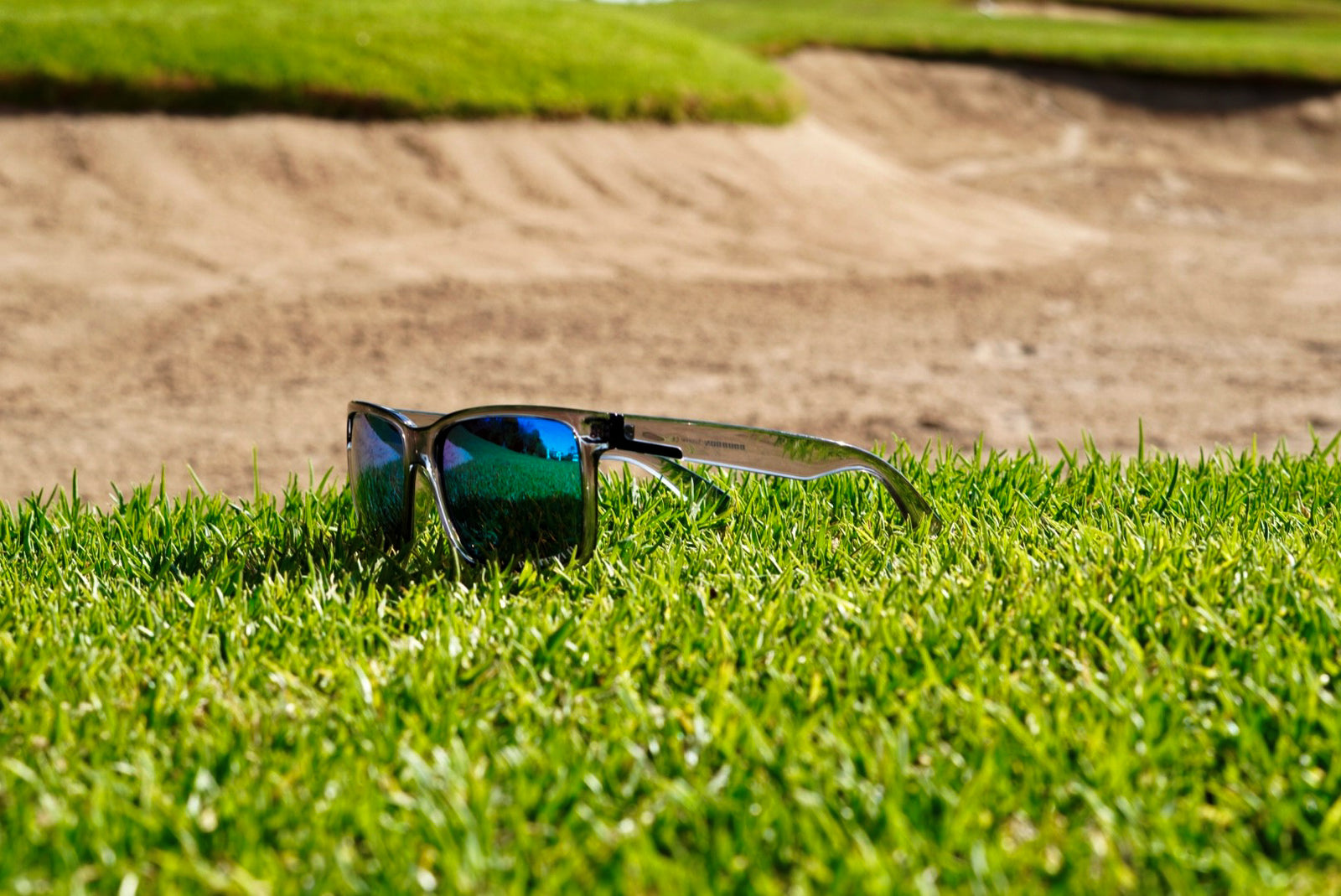Choosing the right pair of sunglasses can be a tough decision: polarized lenses or UV protection. With so many options available, it’s important to know how each feature works and how they affect your eye health. In this guide, we’ll explore the advantages of polarized lenses, highlight the significance of UV protection, and help you determine which option best suits your lifestyle.
Why is UV Protection Important?
Before we get into polarized lenses, let’s talk about UV protection and why it’s so important. The sun gives off ultraviolet (UV) radiation, which isn’t just bad for your skin—it’s tough on your eyes too. Spending too much time in the sun without proper protection can lead to serious eye conditions like cataracts, macular degeneration, or even temporary blindness (also called photokeratitis).
Sunglasses with UV protection are specifically designed to block these harmful rays. The best sunglasses will block 100% of UVA and UVB rays, keeping your eyes safe from the sun's most damaging effects.
How to Choose UV Protection Sunglasses
When you’re shopping for sunglasses, make sure to check the label. Look for something that says "100% UV protection" or "UV400 protection." UV400 means the lenses block rays up to 400 nanometres, which covers both UVA and UVB rays.
One thing to remember: just because lenses are darker doesn’t mean they’re protecting your eyes from UV rays. It’s the UV-blocking coating on the lenses that does the work, not the tint.
What Are Polarized Lenses?
Now that we’ve covered UV protection, let’s switch gears to polarized lenses. These lenses are all about reducing glare. Glare happens when sunlight bounces off flat surfaces like water, roads, or buildings, making it harder to see and sometimes even dangerous if you’re driving or doing outdoor activities.
Polarized lenses have a special filter that cuts through this glare, allowing only vertical light waves to pass through. This makes everything look clearer and more comfortable. That’s why polarized sunglasses are a favourite for outdoor enthusiasts like fishermen, cyclists, and drivers.
Why You’ll Love Polarized Sunglasses
- Clearer Vision: Polarized lenses make colours pop and details sharper, especially in bright environments like on the water or in the snow.
- Less Eye Strain: Glare can make your eyes work harder, leading to discomfort. Polarized lenses reduce that strain, which is a bonus if you’re outdoors for long periods.
- Safer Driving: Glare from the road or the car in front of you can be distracting. Polarized lenses cut through that glare, helping you stay focused and safe behind the wheel.
- More Comfort: By filtering out harsh light, polarized sunglasses make your outdoor experience more enjoyable, especially for activities like hiking, skiing, or just lounging by the pool.
Polarized Lenses vs UV Protection: What’s the Difference?
By now, you’re probably wondering whether you need polarized lenses or UV protection. The good news is you don’t have to choose! Many polarized sunglasses also offer 100% UV protection, so you get the benefits of both in one pair.
That said, if you’re forced to prioritize, always go for UV protection. Polarized lenses are great for comfort and clarity, but protecting your eyes from UV rays is crucial for long-term eye health.
Who Benefits the Most from Polarized Lenses?
While everyone should be wearing sunglasses with UV protection, polarized lenses are particularly helpful for:
- Fishermen and Water Sports Enthusiasts: Polarized lenses help you see below the water’s surface by cutting out glare.
- Drivers: Glare from the road can be distracting and dangerous. Polarized sunglasses help you see clearly, even on bright days.
- Outdoor Adventurers: Hikers, cyclists, and skiers love polarized lenses for their ability to improve visibility in bright, reflective environments.
- Golfers: Polarized lenses can help golfers see the course better, especially on sunny days when glare off the grass can affect their game.
Are There Any Downsides to Polarized Lenses?
As great as polarized sunglasses are, they’re not perfect for every situation. For example, polarized lenses can make it harder to read digital screens, like your phone, GPS, or the dashboard in your car. So, if you rely on screens while you’re out and about, keep this in mind.
They’re also not ideal for low-light conditions, like during dawn or dusk, because they reduce overall brightness. In these cases, regular UV-protected sunglasses might be a better fit. If you want to dive deeper into the pros and cons, read more about polarized sunglasses here in our detailed blog post.
The Bottom Line for Eye Health
In the end, the best sunglasses for your eyes are ones that offer both UV protection and polarized lenses. You get the clarity and comfort of glare reduction while keeping your eyes safe from harmful UV rays. If you’re looking for the perfect blend of style, performance, and protection, Bourbon Eyewear’s range of polarized sunglasses has you covered with both features.
With the right pair of sunglasses, not only will you protect your eyes from harmful rays, but you’ll also enjoy a sharper, more vibrant view of the world—whether you’re exploring the outdoors, chilling by the water, or driving on a sunny day.

